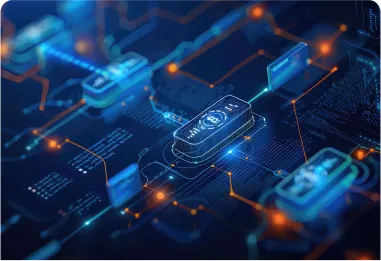This year’s Chabot Summit in Tel Aviv, Israel, revealed some great insights and best practices of chatbot development from over 80 industry leaders. Tech companies, from startups to enterprises, gathered to network and hear about the current state of chatbot technology, and what to expect in the near future.
Our Sphere team not only explored the summit, but was also a proud sponsor. At our booth, we featured a customer service chatbot we helped develop for Brazilian-based smart loan provider, Rebel. Overall, the summit was able to further our understanding of chatbot technology which will help our team build more comprehensive chatbots in the future. Here are some of our takeaways from this year’s summit.
Key Speakers and Hi-Tech Investors
There were many informative speakers at this year’s summit, however these keynote speakers and investors captured our attention the most.
Michael Fertik
Michael was the financial panelist at the opening keynote, titled “Almost Everything Sucks…So Far. Why Investing in Chatbots is About to Get Awesome.” He is the founder, executive chairman, and owner of Reputation.com — a company that specializes in maintaining good online reputations for their clients. Michael is also a co-founder and managing partner at Heroic Ventures, and early-stage venture capital fund that invests in ‘heroes’ who are passionate and purposeful entrepreneurs solving real problems with their technology. He heavily advocates for Internet privacy of every user, and has led campaigns against cyber-bullying.
Dov Moran
Dov is regarded as a “hi-tech legend” by many. He is a pioneer of the flash drive market, and his company M-System invented the first thumbdrive in 1989. Under Dov, M-Systems grew to $1 billion revenue within 18 years. He is also the founder and managing partner of Grove Ventures, a venture capital fund that backs Israeli entrepreneurs and early-stage startups with visions to “change the world.” Dov has received many prestigious awards for his contributions to the hi-tech industry, such as CEO of the Year by IMC (2003), Entrepreneur of the Year by IVA (2007), the Edward Rheine Award (2012), and many more. As of now, he has filed more than 40 patents, and is considered an entrepreneurial inspiration.
Kobi Samboursky
Kobi is a serial entrepreneur with over 25 years of experience in various technology and investment fields. In 2011, he co-founded Glilot Capital — which was rated as the #1 venture capital fund in 2016 by Preqin. Before Glilot, helped build the success of several technology companies like Lamda Communication Networks (acquired by NICE Systems) and iWeb Technologies (acquired by a Japanese consortium). Kobi was also a member of the founding team of Infogear Technologies, the creator of the original iPhone (which was soon acquired by Cisco).
Insights from the Night
With many early-stage chatbot startups in the crowd, the audience was eager to hear what seasoned venture capital investors had to say about the future of chatbots.
“First and foremost, bots that are conversational — bots that have dialogue,” said Fertik. Through Natural Language Processing (NLP) and AI technology, chatbots are becoming increasingly better at understanding complex inquiries. Voice interfaces are also expected to be on the rise as they provide one of the best user experiences for those using chatbots. “This is why home assistants like Cortana and Alexa have made such an impact, and Apple’s HomePod will expand on it in 2018,” Fertik continued. “And I’m sure Facebook will even begin developing a home assistant soon.”
Another insight from Fertik was that the token economy and cryptocurrencies will help evolve chatbots in the future, as some messaging apps, like Kik, are gearing up to release Initial Coin Offerings (ICOs). Fertik believes chatbots, cryptocurrency, and blockchain are meant for each other because chatbots are often used to complete purchases — and this will only increase as their interfaces improve. Blockchain, being a decentralized ledger, will guarantee that those purchases are as secure as possible. As far as smart contracts, chatbots can serve as a more user-friendly interface for tracking the condition of the contract.
Fertik also touched on messaging apps serving as a single platform for chatbots. “WhatsApp is going to open up a private beta bot in several countries,” he said. “Once this bot is ready to open to the public, we could see other companies follow.” Chatbots on messaging apps were introduced first on WeChat in China, however no apps the scale of WhatsApp (used by 1.2 billion people) has released such a bot. Implementing a chatbot API on a single messaging app not only enhances the user experience, but allows the user to complete more tasks than having to download new apps or switch between multiple apps.
As the use of chatbots rise in the customer service industry, the way companies communicate with their consumers will change. Above is a chart that shows the potential of customer-facing chatbots through apps like Facebook Messenger, Google My Business, and Apple Business Chat in eliminating up to 270 billion calls per year.
Tips for the Chatbot Community
All of the speakers concluded that a few years ago, building a company to solely develop chatbots and/or provide chatbot services to other companies just wasn’t possible. The technology and demand from consumers just wasn’t there, but now the “footprint of hardware,” as put by Fernik, has made the possibility of chatbots entering the mainstream market a reality. “The Siri’s, the Alexa’s…they’re not only in our hands, but in our homes,” he said. “This technological footprint is making the opportunity for chatbot makers more attractive.”
Fernik advised chatbot developers to be more ambitious. “The chatbot community is looking for ambitious people who are looking to build a product and push it to the market.” He also advise developers to be less ambitious. “Make something that’s narrow but works, that’s what the chatbot community needs.” Essentially set your sights high, but also make sure the product you’re building is functionally sound.
In software development, it’s not uncommon to launch a product early and then make changes based on feedback. But developing a chatbot requires your product to have a solid foundation before releasing it to the public, otherwise you’ll just create frustration. The room for error when developing a chatbot is much smaller.
Moran resonated with Fernik’s statement, and said that it’s simply too early too build “gold rush” or “drill bit” companies that develop and sell their chatbots to enterprises. “The AI is not good enough yet,” he said. “Build a chatbot that serves a function. These type of ‘gold rush’ companies are about three years away.” Our current state of NLP and Natural Language Understanding (NLU) is still very new, and it could be years until we see chatbots that are able to accurately understand and process a user’s intent with almost no error.
Samboursky added that the underlying technology of chatbots is great, and companies cannot take this technology for granted. At the end of the day, chatbots were created to assist its user, and venture capitalists want to invest in companies that seek to leverage this technology to solve actual problems.
We’d like to thank all of the speakers and helpful staff of the 2018 Chatbot Summit for putting on a fun and informative event. At Sphere, being an active member of the software development community and sharing ideas with other thought leaders is one of our core values.
You can learn more about how Sphere can help your organization implement chatbots by clicking here.







